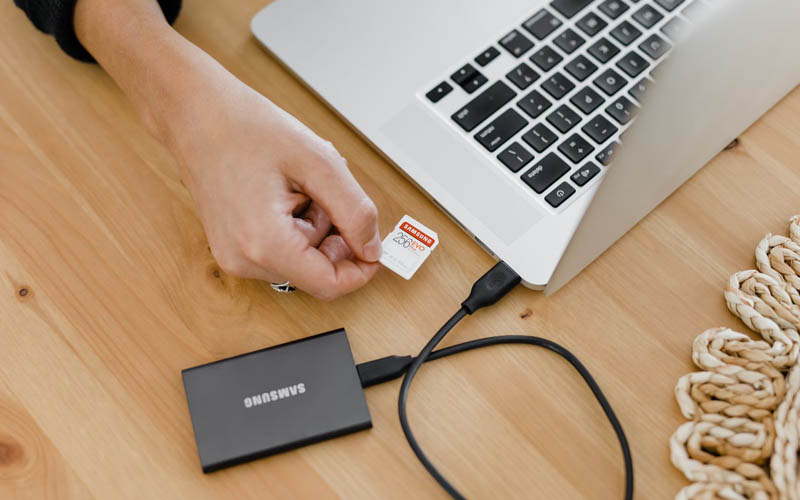Your phone buzzing with “Storage Almost Full” alerts? We’ve all been there. Increasingly, limited phone storage has become one of the most frustrating experiences for users. It slows down performance and leaves you struggling to decide what precious memory, app, or file to delete next. But what if we told you that cleaning up your phone’s storage doesn’t have to mean sacrificing important files?
This blog will show you how to reclaim space on your device while keeping your essential files secure. From clever tools to simple tricks, you’ll learn to manage your storage like a pro.
Why Clearing Phone Storage Is Essential
Overloaded storage can turn even the fastest phone into a sluggish device. Here’s why managing your phone’s storage is crucial for performance and functionality:
- Speed: Having too many files and apps affects processing power, leading to slower response times.
- Battery Life: A crowded system can drain your battery faster as the phone works harder to manage resources.
- Stability: Crashing apps and failure to save essential files are common problems when storage is maxed out.
By proactively managing your phone’s storage, you can ensure a smoother, faster experience.
ADVERTISEMENT
Step 1: Audit and Understand Your Storage
Before you start deleting files, take a closer look at how your phone’s storage is being used.
1.1 Understand Your Storage Breakdown
- On iPhones, go to Settings > General > iPhone Storage to get a visual of your storage usage.
- On Android devices, head to Settings > Storage to see what’s taking up space.
Here you’ll see a breakdown of what’s using your storage, such as apps, photos, videos, or cached files.
1.2 Prioritize What’s Important
Does that cache of memes really deserve space next to your vacation photos? Decide what’s essential and what isn’t before you start your cleanup.
Step 2: Optimize Photos and Videos
Photos and videos are often the largest culprits of storage issues. Luckily, there are ways to keep them safe without consuming precious space.
2.1 Use a Cloud Storage Service
Apps like Google Photos, iCloud, or Dropbox offer seamless cloud backups for your photos and videos. Save high-quality versions online while freeing up storage on your device.
- Pro Tip: Use the “Free Up Space” option in the Google Photos app to automatically remove photos stored locally.
2.2 Compress Your Media
Use apps like JPEG Optimizer or Video Compress to reduce file sizes without compromising quality.
Step 3: Declutter Your Apps
It’s not just the apps you use; it’s the ones you don’t. Many of us download apps for one-time use and forget about them.
3.1 Find and Delete Unused Apps
Check your storage settings for apps you haven’t opened in months. If it’s not adding value, it’s time to say goodbye.
- iPhones can automatically remove unused apps using the Offload Unused Apps feature. Enable this in Settings > General > iPhone Storage.
- On Android, look for the Smart Storage option.
3.2 Clear App Caches
Some apps, especially social media and browsers, accumulate significant cached data over time. Regularly clear cache data in your settings to reclaim hidden space.
Step 4: Eliminate Messaging Clutter
Messages—especially those with photos and videos—can quietly hoard storage.
4.1 Manage Attachments
Go through messaging apps like WhatsApp and iMessage to delete large attachments. Many apps now allow you to bulk delete old files.
4.2 Leverage Auto-Delete
Both iPhones and Android devices have auto-delete features for texts older than a certain duration.
- On iPhones, go to Settings > Messages > Keep Messages and choose options like 30 days or 1 year.
- On Android, explore your messaging app’s settings for similar options.
Step 5: Set Your Downloads Folder Free
How often do you check your downloads folder? It’s time for a spring clean!
5.1 Delete Old Files
Go through PDFs, images, and videos you downloaded ages ago but no longer need.
5.2 Move Files to an External Drive
Transfer large files to a USB drive (for Android phones with OTG support) or use tools like Apple’s Files app on iPhone to save data externally.
Step 6: Rely on Storage-Saving Apps
Some apps specialize in doing the cleanup work for you.
6.1 Try Smart Management Apps
- Google Files: Automatically detect and remove junk files, duplicate photos, and more.
- CleanMyPhone: An all-in-one cleaner for iPhones that frees up storage and optimizes performance.
- CCleaner for Android: A reliable app for clearing cache, deleting unused files, and managing apps.
Step 7: Prevent Storage Issues Moving Forward
Once you’ve freed up space, the challenge is maintaining it. Follow these tips to avoid hitting the limit again.
7.1 Regularly Backup Your Data
Set up automatic backups to cloud services weekly or monthly. This offers peace of mind and prevents clutter.
7.2 Avoid Hoarding
Be mindful when downloading apps or saving media files. Ask yourself, “Do I really need this?”
7.3 Update Your System
iOS and Android updates often include optimization improvements that can help manage storage more effectively.
7.4 Invest in Higher Storage Capacity
If you find yourself frequently running out of space, consider devices with larger storage options in the future.
Keep Your Phone Fast and Efficient
Clearing phone storage doesn’t mean losing valuable memories or sacrificing your favorite apps. With smart management tools and cloud storage solutions, you can reclaim space while keeping your digital life intact.
Say goodbye to the “Storage Almost Full” alert forever—your phone (and sanity) will thank you.
ADVERTISEMENT
Happy decluttering!
ADVERTISEMENT


